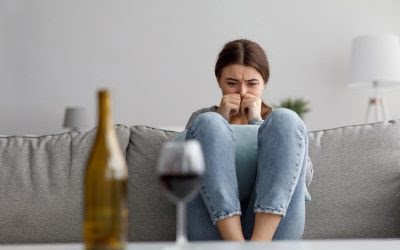In a larger study, Colrain et al. (2009)
studied 42 abstinent long-term alcoholics (27 men) and 42 controls (19 men). As in the
previous study (Nicholas et al. 2002), alcoholics
were significantly less likely to produce K-complexes than controls. P2 amplitude was,
however, smaller in alcoholics than controls with the difference being largest at Cz,
where the component was maximal, but smaller at other sites (see Figure 5). There were no sex
differences or interactions between diagnosis and sex for K-complex incidence, P2
amplitude or P2 latency.
There shouldn’t be shame or stigma about wanting to slow down or stop drinking because needing to do so isn’t the exception; it’s the rule. This article explores how alcohol affects your quality of sleep. It also covers what symptoms you might have if you don’t wait long enough between having your last drink and going to bed. Alcohol is the most common sleep aid—at least 20 percent of American adults rely on it for help falling asleep.
Personal Relaxation Methods
Almond milk is high in sleep-promoting hormones and minerals, including tryptophan, melatonin, and magnesium. In fact, 1 cup (237 ml) of almond milk contains nearly 17 mg of magnesium (67, 68, 69). However, treatment with 10–20 mg of curcumin extract for 5 consecutive days reduced weight loss and significantly improved anxiety-like behavior (59). There is some evidence that warm milk alone may help you sleep better at night (55, 56, 57, 58). Unless you’re lactose intolerant or have a milk allergy, there’s no harm to giving this bedtime ritual a shot. Tryptophan naturally increases serotonin, a neurotransmitter known for happiness and well-being.
If co-occurring substance use and insomnia are causing problems in your life or the life of a loved one, reach out to a representative to begin the journey towards recovery. Multiple relaxation methods can be used to help you wind down and fall asleep. These include breathing exercises, visualization exercises and progressive muscle relaxation. Doctors have found that on its own, alcohol can narrow your upper airway and lead to sleep apnea problems, even if you have never had them before. Studies have shown that when you get up the next day, you may be less alert because of your drinking the night before, even though you no longer have alcohol left in your body.
Why You Should Limit Alcohol Before Bed for Better Sleep
The increase in delta activity is also consistent with alcohol’s GABA
agonist properties. GABA mediated hyperpolarization of cortical and thalamo-cortical
neurons is thought to underlie the calcium channel mediated burst firing that results in
EEG delta activity (Steriade 1999). While alcohol
does how to fall asleep without alcohol not lead to presynaptic GABA release in the thalamus or cortex the way it does in
some other brain regions (Kelm, Criswell, and Breese
2011), it does enhance the function of GABAA receptors. Two studies have evaluated sleep evoked responses in abstinent long-term
alcoholics.
- These nerve cells in the brain coordinate your daily physiological functions and prepare your body for sleep at night.
- Sleep apnea is a disorder characterized by abnormal breathing and temporary loss of breath during sleep.
- Alcohol is classified as a central nervous system depressant, meaning it slows down brain activity.
Whatever ritual and bedtime works for you, the most important thing is to make a plan, and to keep it consistent. REM sleep is a kind of sleep that happens at intervals throughout the night and is characterized by dreaming, rapid eye movement, and faster breathing and heart rate. Alcohol can induce non-REM sleep quickly, but this throws off the natural sleep cycle, reducing your overall amount of https://ecosoberhouse.com/ REM sleep. During REM sleep your body is able to relax and rest more fully. While your body is resting during REM sleep, your brain actually becomes more active and stimulates its long-term memory center. Not only can losing REM sleep make you feel sleepy and drained when you wake up, but it can also lead to long-term memory loss, impaired judgment, and overall decreased cognitive functioning.
Can Alcohol Cause Sleep Apnea?
Research from 2020 states that alcohol reduces sleep quality, and while it may not significantly reduce REM sleep, there is dysregulation. Alcohol may also result in suppressed REM sleep in the short term. Although alcohol can initially have a sedative effect, it can lead to problems in the sleep cycle. In this article, we explore the sedative effects of alcohol and ways to avoid this from occurring.

